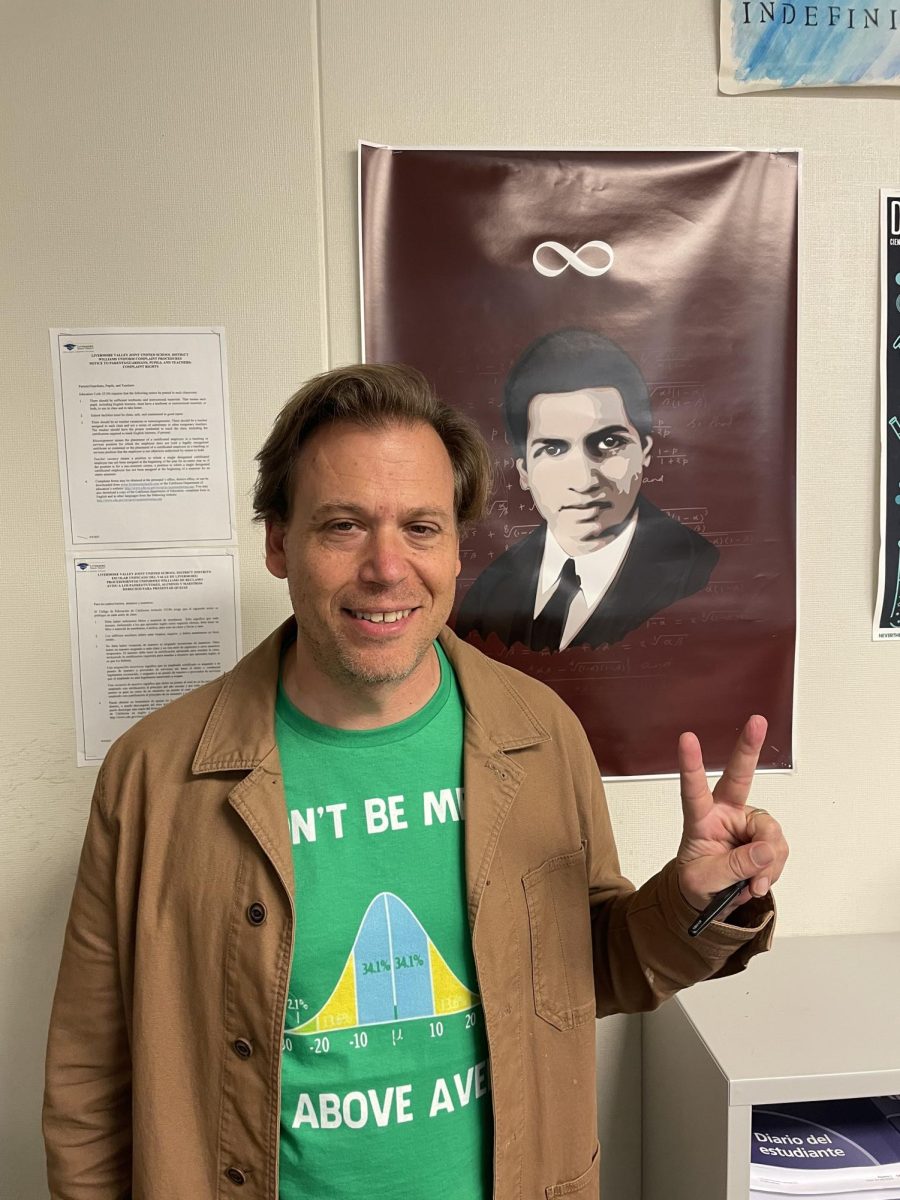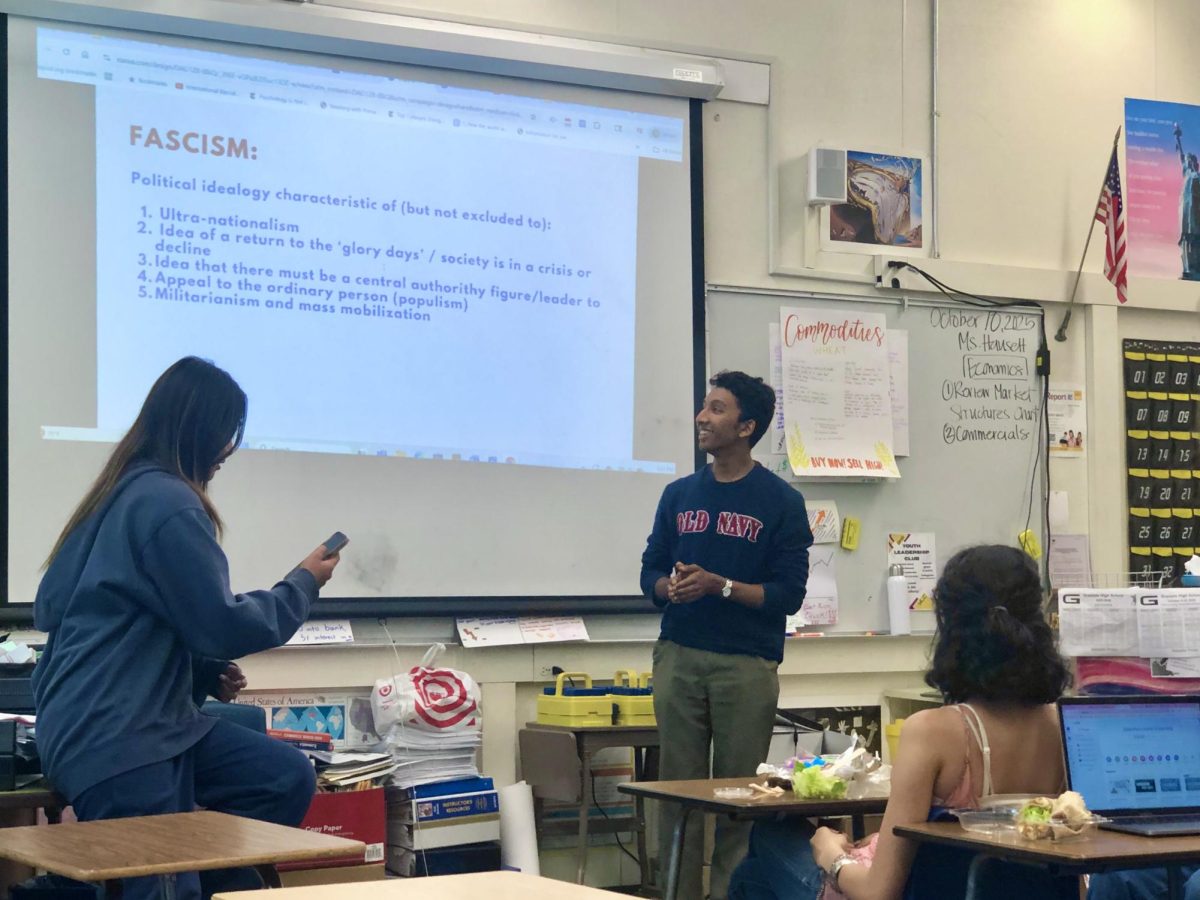The State of Education: How It Has Affected Granada and What Our Teachers Have to Say About It

February 6, 2023
Here at Granada, at least for the past two years, seeing teachers substituting for their colleagues has become commonplace. Teachers throughout the school have begun to dread answering phone calls, for fear of losing their prep period in order to cover for an absent coworker. This problem is by no means unique to Granada, and has riled up teachers across the nation. It wasn’t always like this, at least, not this extreme. So, the seemingly obvious question to ask is: why? Why do my teachers now wear blue on Tuesdays? Why does my mother, a teacher herself, now come home more exhausted and discouraged than before? And why, out of the 100-plus teachers I emailed to ask for an interview, were only seven willing to talk to me?
Before I begin, I would like to make clear that the purpose of this article is not to bash our administrators or legislators or government. The last thing I want to do is make Granada a hostile or uncomfortable environment for both staff and students. All I wanted to do was ensure teachers’ voices could be heard on this issue, and that it was done in a respectful and comprehensive manner. I’ve realized that I’ve spent too much time in these past four years worrying about my classes and not nearly enough time appreciating those who teach them, and this is my way of fixing that.
It is important to note that the teacher shortage is not a disaster. In California, some areas remain relatively unaffected, having been able to fill their vacancies before the start of the school year and, from then on, running smoothly. However, not all districts have been so lucky. Santa Ana Unified School District reported 55 teacher vacancies to start their school year while Long Beach Unified reported 45 vacancies, and this was after recruiting 277 new teachers over the summer. Oakland has also been struggling, with 34 vacancies back in September.
As for Livermore, the Livermore Education Association (LEA) reported 30 unfilled positions to mark the beginning of our school year. Again, these numbers aren’t terrible and will not mark the end of the public school system as we know it, but they definitely aren’t good, and there has to be a reason behind the declining number of teachers willing to work.
“I think there is a multitude of problems with the teacher shortage,” says Mr. Martin. “I think COVID didn’t help because it shut down not only us in high school, but it shut down colleges, so teacher programs were wiped for about a year. So, the people who wanted to become teachers- there’s a delay. And it’s going to take two or three years for them to catch up.”
COVID’s impact on teachers did not end there, however. Burnout and teacher turnover rates have increased dramatically since the pandemic. In March of 2021, 41 percent of teachers claimed to be considering quitting or retirement following that school year, according to the Brookings Institution. Furthermore, a RAND survey from January of 2021 revealed that nearly 25 percent of all teachers surveyed indicated a desire to leave their jobs, as compared to the normal turnover rate of 16 percent. High teacher turnover rates no doubt makes it more difficult to run a school at an administrative level but also has an impact on students.
Mr. Mattern, having seen his own child go through multiple teachers the past two years, claims, “We’re not able to draw from a wide pool of candidates for teaching positions. And when you have a teacher shortage, which we have, a lot of students are going through a cycle of teachers, and those students really have to go through a lot of bumps in the road. That turnover in the classroom is terrible for continuity and skill development.”
COVID has also impacted those teachers who choose to stay in the field, with the lack of substitutes making it increasingly difficult for teachers to get a day off. “With the COVID piece hitting, maybe they [substitute teachers] have finally fully retired, or don’t have a desire to do it anymore. I think there’s a number of people who just don’t have a desire to sub anymore,” said Mr. Avilla.
Mr. Gresham, who began his teaching career not long before the pandemic, has a unique point of view concerning distance learning.
“For me, being a new teacher in that moment [during lockdown] I just thought, oh gosh, this is what teaching looks like. I say often that I’m kind of thankful I didn’t have ten years of in-class teaching experience and muscle memory to work against. Still, I much prefer teaching in person; it’s far better in terms of developing a rapport and logistics. It does feel like we had some turnover in our English department after the pandemic and maybe some of that was because they did have to rethink how teaching was done and working against years or maybe decades of previous experience in person.”
All of the teachers I spoke to for this article revealed that they have subbed for one of their coworkers repeatedly throughout this school year. Teachers are typically asked to sub during their prep periods, more often than not impeding a teacher’s ability to prepare for their own classes.
“I grade, I prepare lesson plans, plan around my week, correspondence with students, that kind of thing,” said Mr. Gresham. “Basically, my prep period is where I do everything I can’t do during class.”
Mr. Martin adds, “That hour [of prep] is critical for a teacher to plan, to grade, to prepare for classes.”
Compensation has always been an issue for teachers nationwide, but, in recent weeks, calls for pay increases for Livermore teachers specifically have grown louder than before. Out of 19 nearby districts, districts like San Ramon, Dublin, Pleasanton, Fremont, and Hayward, Livermore ranks fourteenth in teacher salaries. The LEA has requested a 10.9% increase in pay across all grade levels in order to compensate for this discrepancy.
Mr. Martin contends that, “Pay is a fundamental problem because how do you afford to live in the bay area? It’s difficult.”
Many teachers at Granada are active participants in the teachers’ union in hopes of bettering working conditions for teachers across the country as well as locally. Recently, there seems to be a higher degree of participation and activity among those parts of the teachers union at Granada, exemplified by the t-shirts many have committed to wearing each Tuesday. As students, though, it may be difficult to understand why unions are important.
“I’ve always been a part of the union, and I really believe that the union is a way to represent the voices of teachers,” explains Mr. Jeremy Mattern, “I got more involved [this year] because, at some point, you can’t just be a critic, you have to actually put your actions where your heart is. I was communicating with some of our union representatives and they encouraged me to become a part of our organizing committee. It’s a small thing that I can do to learn more about the process of what our union does and how it advocates for teachers.. One of the roles I play is communicating with teachers on our campus and at other sites about what our union activities are going to be. I realized it was becoming hypocritical of me to not contribute to a positive change.”
Though other teachers are involved to a lesser extent than Mr. Mattern, many are active members of the union and their fight for change. An example would be Mr. Avilla, who commented on his experience as part of the teacher’s union, “I’m a supportive individual, I don’t necessarily attend bigger union meetings, but there are events that I’m willing to support. I think unions have their place to be able to fight for workers’ rights and liveable working conditions and liveable working pay. There’s a definite benefit. More and more transparency is crucial.”
From the interviews I conducted, there seems to be a common consensus that change is needed, and many are willing to get involved in order to solve problems and improve working conditions for teachers. However, whatever issues Granada teachers may have with their profession, it is undeniable that they all love what they do. Going into these interviews, I wanted to see if, even with it’s difficulties, if teachers would still do it all over again, and, across the board there was a resounding “yes.” Every single teacher I talked to has a deep love for what they do, for their subject, their colleagues, and for the kids they teach.
“I love teaching. I would 100 percent become a teacher again, no matter what. I love doing this job, it’s fulfilling for me, it’s challenging, it’s stimulating intellectually and I love it,” says Mr. Gresham.





























kinda • Feb 17, 2023 at 12:29 pm
really informative, good article!
Daniel • Feb 11, 2023 at 7:36 pm
This was very cool and interesting to learn about how teachers go through the same stress as we do!
Landon Dattilo • Feb 9, 2023 at 1:59 pm
Nice article, good information
Val • Feb 9, 2023 at 1:58 pm
Very good article. Really informative on how it impacts students and teachers.
Aidan Ho • Feb 7, 2023 at 12:06 pm
Good article! Very informative.